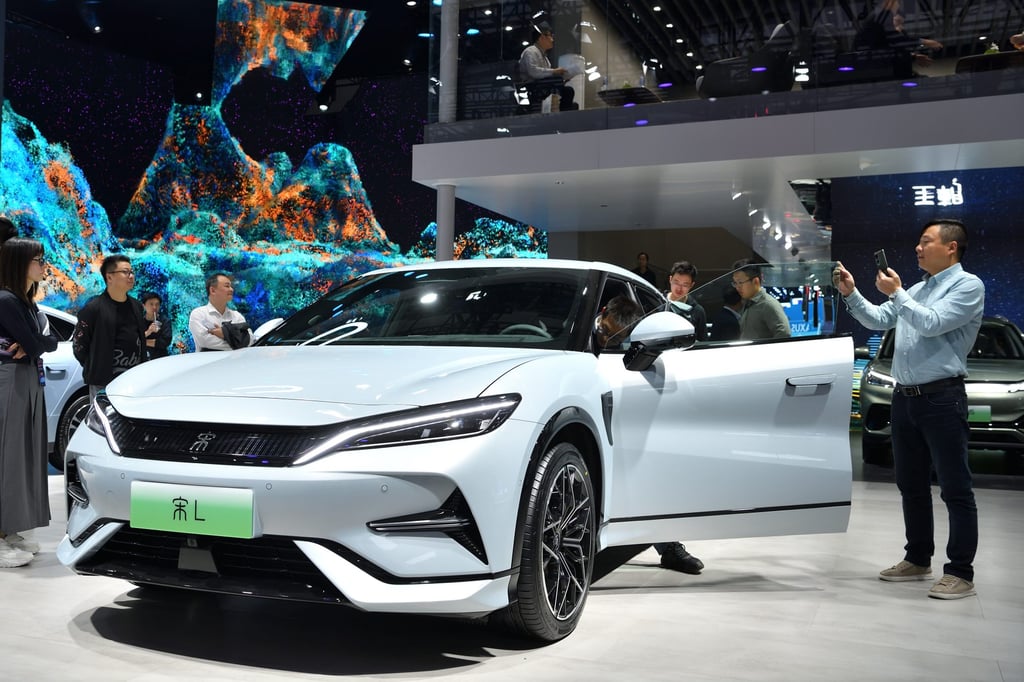BYD overtook Tesla for the first time in quarterly sales, as customers worldwide snapped up automobiles that are driven by hybrid petroleum-electric power trains to assuage lingering concerns about battery-powered electric vehicles (EVs).
Sales at the Shenzhen-based carmaker, the world’s largest assembler of hybrids and pure EVs, jumped 24 per cent to 201.12 billion yuan (US$28.2 billion) in the three months that ended on September 30, more than Tesla’s US$25.18 billion in third-quarter revenue, according to the two companies’ results.
BYD’s net profit increased 11.5 per cent from a year earlier to 11.61 billion yuan (US$1.63 billion) in the quarter, less profitable than Tesla’s net income of US$2.17 billion in the same period.
The results underscore Tesla’s growth bottleneck in China, the world’s largest automobile market, as buyers migrate from internal combustion engines to EVs in a shift that may see 60 per cent of all new vehicles being driven by batteries by 2030. Tesla sells four models of pure EVs in China, fewer than BYD’s portfolio of several dozen EVs, hybrids and petroleum-driven vehicles.

“Unless Tesla further lowers its prices, introduces new models or launches its Full Self-Driving feature in China, it is unlikely to see further growth in China”, said Yale Zhang, head of the Shanghai consulting firm Automotive Foresight. “If Tesla wants to sell more EVs, it can only depend on sales growth in other overseas markets.”

 By South China Morning Post | Created at 2024-10-31 04:54:46 | Updated at 2024-10-31 07:20:02
2 hours ago
By South China Morning Post | Created at 2024-10-31 04:54:46 | Updated at 2024-10-31 07:20:02
2 hours ago



